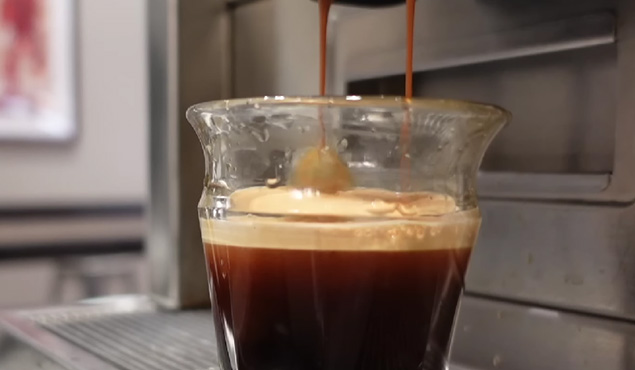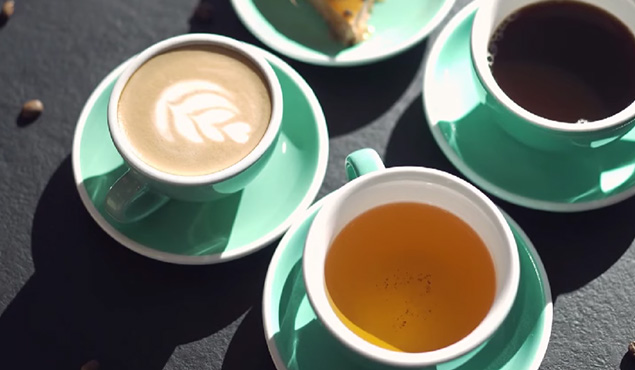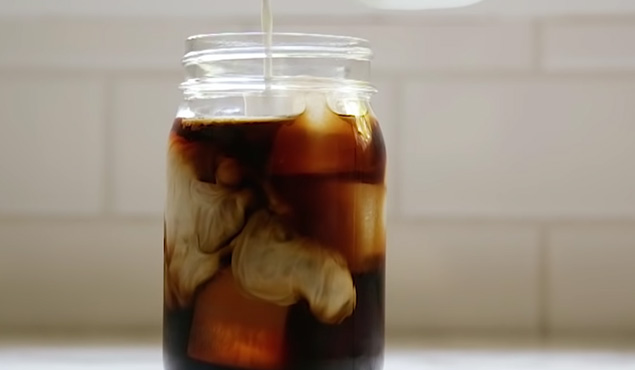Decaf Coffee: Is it a Dehydration Culprit? (Interesting Facts)

Are you among those conscious about their water intake due to beauty, health, or athletic reasons? We know that hydration has become an essential part of the beauty routine in today’s world. People are increasingly aware of the benefits of drinking enough water and maintaining hydration levels for healthy skin, hair, and nails.
As people become more hydration-conscious, they usually wonder if decaf coffee counts as part of their daily water intake. So, let’s see how a daily cup of decaffeinated coffee plays a part in daily hydration.
What Is Decaf Coffee?
Since people know caffeine is the culprit, drinking decaf coffee is becoming a norm. So, what exactly is decaf coffee? Well, it’s what it sounds like -the coffee with the caffeine removed. Decaffeinated coffee – the drink for those who love the taste of regular caffeinated coffee but don’t want the jitters that come with it.
When coffee beans are soaked in a solvent or water, It extracts the caffeine from them. Then the beans are washed to remove any remaining solvent. And once the caffeine has been removed, these beans are dried and roasted, just like regular coffee beans. Thus, It only contains about 2 to 5 milligrams compared to 95 mg of regular coffee. It means drinking decaf coffee cuts 95% of your caffeine intake.
Does Decaffeinated Coffee Dehydrate You?
It’s a question that’s been hotly debated for years, with conflicting answers and many opinions. So, let’s look at the evidence and see what the research says.
First, it’s important to understand that caffeine is a diuretic, which can increase urine production and lead to dehydration. So, it’s reasonable to assume that decaf coffee, with its lower caffeine content, would be less likely to cause dehydration. But is this the case?
Recent studies have shown that decaf coffee may not be as hydrating as we once thought. One study from Harvard found that both caffeinated coffee and decaf coffee had similar effects on fluid balance in the body. It suggests that decaf coffee may still cause some degree of dehydration, but not necessarily. So, when you drink decaf coffee that does not dehydrate you, it doesn’t hydrate you either.
But before you swear off regular and decaf coffee forever, remember that hydration is more than just the beverages we drink. Our overall diet and lifestyle are crucial in maintaining proper hydration levels, and drinking plenty of water throughout the day is always a good idea.

What Are The Signs Of Dehydration?
Dehydration occurs when the body loses more fluids than it takes in. It can happen for various reasons, including not drinking enough fluids, sweating excessively, or experiencing vomiting or diarrhea. Dehydration can lead to serious health problems if left untreated. Here are some signs of dehydration that you should be aware of:
Dry Mouth and Throat:
A dry mouth and throat are the most common signs of dehydration. When you are dehydrated, your body reduces the amount of saliva it produces, which can cause your mouth and throat to feel dry and sticky. You may also experience difficulty swallowing or a sore throat.
Fatigue and Dizziness:
Dehydration can also cause fatigue and dizziness. When your body doesn’t have enough fluids, your blood pressure can drop, making you feel lightheaded or dizzy. You may also experience a headache or a general feeling of tiredness.
Dark-Colored Urine:
Another sign of dehydration is dark-colored urine. When dehydrated, your urine becomes more concentrated and darker in color. In severe cases, you may not be able to produce any urine at all.
Dry Skin:
Dehydration can also cause dry skin. Due to lower body fluid, your skin can become dry, flaky, and itchy. Hence, you may notice that your skin feels tight or appears dull in case of dehydration. Therefore, drinking a lot of water has been the mantra of several cosmetologists and beauty guides.

What Are The Benefits Of Decaf Coffee?
And while decaf coffee may not be the most hydrating option, it has some potential health benefits. For example, studies have shown that decaf coffee may help protect against certain diseases. So, let’s uncover the beneficial face of decaf coffee.
- It reduces the risk of type 2 diabetes and liver disease. It may also help reduce the risk of certain cancers, such as prostate and breast cancer.
- Decaf coffee doesn’t contain caffeine, so you can enjoy it anytime without affecting your sleep or causing jitters. It makes it a great option for people who enjoy the taste of coffee but don’t want to consume caffeine.
- While caffeine can sometimes exacerbate anxiety, decaf coffee has been shown to have a calming effect.
- For some people, caffeine can cause digestive issues such as acid reflux, heartburn, and stomach upset. Decaf coffee is a great option for those sensitive to caffeine and wanting to avoid these issues.

What Are The Side-effects Of Decaf Coffee?
Decaf coffee is generally considered safe. However, it may offer some potential health benefits. Therefore, it’s important to be aware of its potential side effects.
- It still contains small amounts of caffeine, but not enough to cause jitters or anxiety.
- Some people experience stomach upset or acid reflux from drinking decaf coffee, which can be mitigated by drinking it with food or choosing a low-acid option.
- Decaf coffee may provide an extra energy boost than regular coffee.
- Decaf coffee can be more expensive than regular coffee.
- Some people may miss the caffeine buzz from regular coffee.
How To Prepare Decaf Coffee?
Let’s say it’s a lazy Sunday morning, and you’re craving coffee, but you don’t want the caffeine jitters. Here’s how you could make yourself a delicious morning cup full of decaf coffee:
- Grind your decaf coffee beans or use pre-ground decaf coffee. If you’re using a coffee grinder, set it to the appropriate setting for your coffee maker or French press.
- Heat your filtered water until it’s hot but not boiling.
- Add the decaf coffee grounds to your coffee maker or French press. If you’re using a coffee maker, add the appropriate amount of water for the number of cups you want to make.
- Pour the hot water over the coffee grounds to saturate all the coffee evenly.
- Let the coffee steep for about 4-5 minutes. It allows the flavor to develop fully and ensures that your next cup of coffee is strong enough.
- Pour the decaf coffee into your coffee mug and enjoy! If you like your coffee with milk or sugar, add those in after brewing.
Is There Any Difference In Dehydration Between Decaf and Regular Coffee?
Both who drink decaf coffee and regular coffee can have a similar effect regarding dehydration. It is because caffeine isn’t the only thing that can cause dehydration – brewing coffee can also remove water from the beans. So, if you’re trying to stay hydrated, it’s a good idea to balance your coffee intake with plenty of water throughout the day. And if you want to reduce your risk of dehydration, try switching to herbal tea or water instead!

Related Read: DIFFERENT TYPES OF COFFEE
How does dehydration affect the body?
Dehydration is a serious issue that can mess with your body. Your body function starts to disturb when you don’t have enough water. Think like this: your body is like a car, and water is the fuel. Without enough fuel, your car will not run properly. And without enough water, your body won’t run properly either.
So, what happens when you’re dehydrated? Well, first of all, you might feel thirsty. That’s your body’s way of telling you it needs more water. But if you ignore that thirst, things can get pretty serious.
Your blood volume decreases, so your heart must work harder to pump blood around your body. Your muscles might cramp up, you might feel dizzy or lightheaded, and you might even get a headache.
But it’s not just your physical health that’s affected by dehydration. Your brain can also be affected. When you’re dehydrated, your brain can’t function as well. You might feel foggy or confused, and you might even need help remembering things.
And if you’re dehydrated, you could end up in the hospital. That’s because severe dehydration can cause your organs to shut down, which is not good.
So, if you’re feeling thirsty, do yourself a favor and grab a glass of water. Your body will thank you for it!

How much water should I drink to stay hydrated?
Staying hydrated is essential for your overall health and well-being. But how much water do you need to drink to stay hydrated?
The National Academies of Sciences, Engineering, and Medicine recommends that men aim for about 3.7 liters (125 ounces) of total water intake per day, while women should aim for about 2.7 liters (91 ounces) of daily fluid intake. This includes all sources of water, including water from beverages and food.
However, this is just a general guideline, and your needs may vary. If you’re physically active or live in a hot climate, you may need to drink more water to stay properly hydrated. Paying attention to your body is the best way to tell if you’re getting enough water.
FAQs:
Does Decaf Coffee Make You Thirsty?
No, decaf coffee doesn’t make you thirsty! In fact, It can count toward your daily fluid intake. So, if you enjoy the taste of coffee but want to cut back on normal caffeine intake, decaf is a great option. And don’t worry about it making you thirsty.
Is Decaf Coffee Better Than Normal Coffee?
Decaf coffee has less caffeine, which may be better for those sensitive to caffeine or trying to limit their intake. However, regular coffee has more antioxidants and potential health benefits. Ultimately, choosing between preparing decaf coffee and normal coffee is a matter of personal preference and health goals.
Do you pee less after drinking decaf coffee?
Decaf coffee can have a mild diuretic effect, which means it can make you pee more often. However, the diuretic effect is usually less strong since decaf coffee contains less caffeine. So, while you may still need to use the restroom more frequently after drinking decaf coffee, it may be less noticeable than regular coffee.
Is decaf inflammatory?
Decaf coffee is not inherently inflammatory, but its potential to cause inflammation depends on factors such as processing methods and additives.
Besides, the polyphenols in decaf coffee can have anti-inflammatory properties and provide health benefits. Ultimately, choosing a high-quality decaf coffee and limiting the use of inflammatory additives can help reduce the risk of inflammation.
Is decaf coffee bad for your gut?
Decaf coffee is not bad for your gut. However, some people can experience stomach discomfort after drinking decaf coffee. That’s usually due to other factors like the acidity of the coffee or the presence of gut-irritating oils. And, let’s face it, different people have different thresholds for what they can tolerate. So, it depends on your body.
